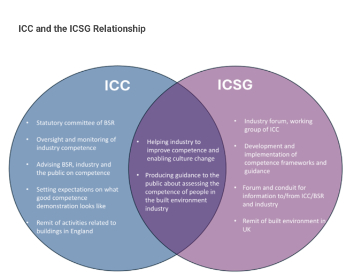The end of section 21 evictions in the UK
The end of Section 21 notices has significant implications for landlords in the UK. Section 21 of the Housing Act 1988 provided a mechanism for landlords to evict tenants without providing a specific reason, commonly referred to as "no-fault" evictions. However, the UK government introduced changes to the law with the aim of improving tenant security and reducing instances of unfair evictions. Here's what the end of Section 21 means for landlords:
- Removal of No-Fault Evictions: With the end of Section 21, landlords can no longer evict tenants simply by giving them a notice without providing a specific reason. Landlords must now rely on valid grounds for eviction as outlined in Section 8 of the Housing Act 1988.
- Strengthened Tenant Protections: The removal of no-fault evictions enhances tenant security and reduces the risk of arbitrary and unfair evictions. It provides tenants with greater stability and the ability to challenge eviction notices if they believe they are unjust.
- Eviction Grounds under Section 8: Landlords seeking to evict tenants must now rely on one or more of the specified grounds listed in Section 8 of the Housing Act 1988. These grounds include rent arrears, breach of tenancy agreement, anti-social behavior, and other valid reasons for eviction. Landlords must provide evidence and follow the appropriate legal procedures to pursue eviction.
- Possession Proceedings: Landlords may need to initiate possession proceedings through the court system if they have valid grounds for eviction under Section 8. This process can be more time-consuming and complex compared to the previous Section 21 process. Landlords should familiarise themselves with the legal requirements and seek professional advice to navigate the eviction process effectively.
- Impact on Landlord-Tenant Relationships: The removal of no-fault evictions may lead to longer tenancies and potentially more stable landlord-tenant relationships. Landlords are encouraged to establish good communication, maintain properties to a high standard, and address tenant concerns promptly to foster positive relationships with their tenants. This includes addressing problems with disrepair in the property, which can lead to legal action by the tenant.
- Eviction Alternatives: Landlords are encouraged to explore alternative means of resolving disputes or addressing issues with tenants before resorting to eviction. Mediation, negotiation, and mutually agreed-upon solutions can help maintain positive landlord-tenant relationships and minimise the need for eviction.
It's important for landlords to stay updated on any changes to landlord and tenant legislation in the UK, as non-compliance can lead to legal consequences. Seeking legal advice and understanding the specific requirements and procedures in their region is crucial for landlords to navigate the evolving landscape and ensure compliance with the law.
[edit] Related articles on Designing Buildings
Featured articles and news
Twas the site before Christmas...
A rhyme for the industry and a thankyou to our supporters.
Plumbing and heating systems in schools
New apprentice pay rates coming into effect in the new year
Addressing the impact of recent national minimum wage changes.
EBSSA support for the new industry competence structure
The Engineering and Building Services Skills Authority, in working group 2.
Notes from BSRIA Sustainable Futures briefing
From carbon down to the all important customer: Redefining Retrofit for Net Zero Living.
Principal Designer: A New Opportunity for Architects
ACA launches a Principal Designer Register for architects.
A new government plan for housing and nature recovery
Exploring a new housing and infrastructure nature recovery framework.
Leveraging technology to enhance prospects for students
A case study on the significance of the Autodesk Revit certification.
Fundamental Review of Building Regulations Guidance
Announced during commons debate on the Grenfell Inquiry Phase 2 report.
CIAT responds to the updated National Planning Policy Framework
With key changes in the revised NPPF outlined.
Councils and communities highlighted for delivery of common-sense housing in planning overhaul
As government follows up with mandatory housing targets.
CIOB photographic competition final images revealed
Art of Building produces stunning images for another year.
HSE prosecutes company for putting workers at risk
Roofing company fined and its director sentenced.
Strategic restructure to transform industry competence
EBSSA becomes part of a new industry competence structure.
Major overhaul of planning committees proposed by government
Planning decisions set to be fast-tracked to tackle the housing crisis.
Industry Competence Steering Group restructure
ICSG transitions to the Industry Competence Committee (ICC) under the Building Safety Regulator (BSR).
Principal Contractor Competency Certification Scheme
CIOB PCCCS competence framework for Principal Contractors.
The CIAT Principal Designer register
Issues explained via a series of FAQs.

























